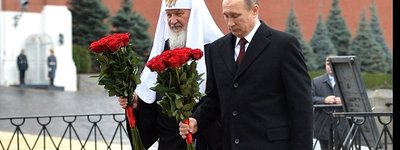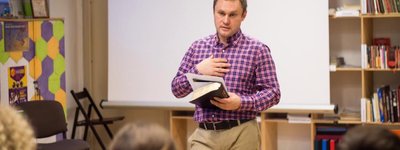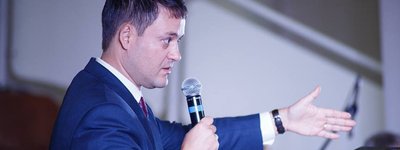Clerics In Camo
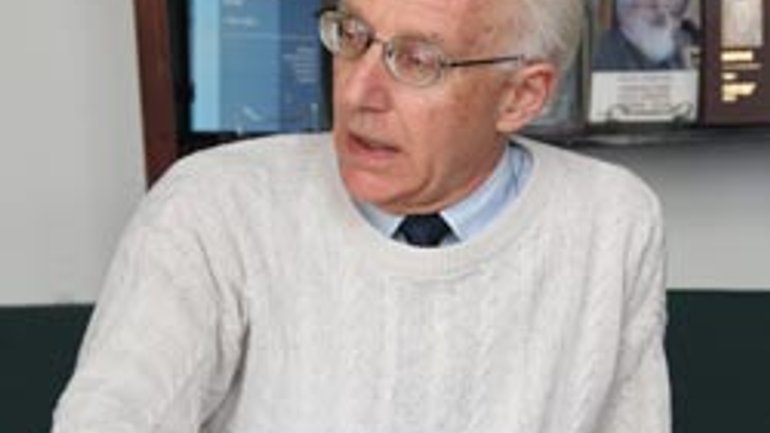
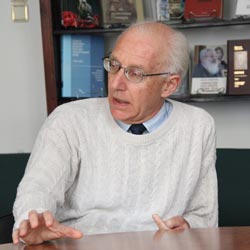 “If your hearts burn with true love for Ukraine, for this Ukrainian people enslaved for ages, it is not you, but this burning love that will speak and act.” - Fr. MykolaIzhak in a message to military chaplains, 4 February 1919
“If your hearts burn with true love for Ukraine, for this Ukrainian people enslaved for ages, it is not you, but this burning love that will speak and act.” - Fr. MykolaIzhak in a message to military chaplains, 4 February 1919
Citing the Institute on Religious Freedom, RISU reports that a statute on military chaplains in the Armed Forces of Ukraine entered into force by Ministry of Defense decree No. 40 of 27 January 2015, registered at the Ministry of justice on 14 February as no. 161/26606. Under the statute, religious organizations belonging to the Defense Ministry’s Council for Affairs of Pastoral Care may nominate chaplains. If the candidates meet the statutory criteria, they are appointed to service in the armed forces. They may not bear arms.
This is a welcome if long overdue measure. It is not, however, without precedent. While the Soviet army obviously did not have chaplains, Western Ukrainians can look to the brief experience of the “Halychyna” Division (1943-45) and the Ukrainian Insurgent Army (1942-50) for examples. But World War I and the ensuing Ukrainian war of independence offer a more solid precedent. From the outbreak of war in 1914 to the collapse of Austria-Hungary in 1918, Western Ukrainian Greek-Catholic priests served as Austrian army chaplains. In his study of military chaplains, Fr. Ivan Lebedovych lists only ten such men on active duty, but over 125 reservists. Among them was Fr. Konstantyn Bohachevs’kyi, who served on the Italian front.He also mentions four Ukrainian Catholic chaplains in the Sich Sharpshooters, a Ukrainian formation within the imperial army (Ivan Lebedovych, Polevidukhovnyky UHA, Winnipeg 1963, pp. 299-302).
During the war of independence, the Western Ukrainian People’s Republic established a military chaplaincy for the Ukrainian Galician Army, effective 1 January 1919. The State Secretariat for Military Affairs created the “Prepodobnytstvo” to supervise the chaplains, with a corresponding office in the Supreme Army Command (Order of 4 February 1919 on the Organization of the Ukrainian Army, Visnyk Derzhavnoho Sekretariatu Viis’kovykh Sprav, 15 February 1919, no. 6, articles 6-7, quoted in Lebedovych, op. cit., p. 74). Military chaplains served in the field as well as in hospitals. They issued death certificates and arranged for burials of fallen soldiers (whether from Galicia, greater Ukraine, or in enemy forces). Fr. Lebedovych lists 91 chaplains of the Ukrainian Galician Army for the years 1918-1920 (Lebedovych, op. cit., pp. 81-86).
In his message to the chaplains dated 4 February 1919 in Stanyslaviv (now Ivano-Frankivs’k), Fr. MykolaIzhak of the State Secretariat for Military Affairs wrote: “If your hearts burn with true love for Ukraine, for this Ukrainian people enslaved for ages, it is not you, but this burning love that will speak and act.” (Id., p. 75)
Some of the chaplains, like Fr. AndriiIshchak or Fr. Teofil’ Hornykevych, served in military hospitals (Id., pp. 82-83). Others risked their lives in the field. Fr. Andrii Bandera (born 1882, ordained 1906) survived the notorious “rectangle of death” in 1919 (Id., p. 81). Fr. MykolaIzhak died of typhus at Zhmerynka in December 1919 (Id., p. 136). Fr. Teodor Chaikivs’kyi (born 1888, ordained 1911) died from a saber wound, also at Zhmerynka, in May 1920 (Id., p. 206).
In the interwar period, the former Austrian crownland of Galicia was administered by the Second Polish Republic as “Eastern Little Poland.” The surviving Ukrainian chaplains returned to civilian life and resumed pastoral or educational work. Fr. Konstantyn Bohachevs’kyi was nominated bishop for Ukrainian Greek-Catholics in the United States in 1924. The experience of participating in the struggle for Ukrainian independence no doubt strengthened these pastors’ dedication to serving both God and country.
What was thesubsequent fate of the military chaplains of 1914-1920? A number of them, like Fr. Andrii Ishchak and Fr. Ivan Horniatkevych, were killed during the Soviet occupation of 1939-1941 (Id., pp. 82-83). Fr. Andrii Bandera, whose son Stepan was a leader of the Organization of Ukrainian Nationalists, was arrested by the Soviets and died in Siberian exile in 1941 (Id., p. 81). Mitred protopresbyter Fr. Vasyl’ Laba, who had officiated at the funeral of Fr. MykolaIzhak in 1919, became vicar general in the metropolitan consistory for the spiritual care of the “Halychyna” division in 1943. (I. Nahaievs’kyi, Spohady pol’ovoho dukhovnyka, Toronto 1985, p. 36). He thus served as a link between the Ukrainian military chaplains of World War I and II. Fr. Omelian Kovch (born 1884, ordained 1911), who had served in a military hospital during the war of independence, was arrested by the Gestapo in 1943 for aiding Jews (Lebedovych, op. cit., p. 83). He died at the Majdanek concentration camp in 1944 and was beatified by Pope John Paul II in 2001.
At the end of the war a number of the chaplains emigrated to Western countries. Fr. Teofil’ Hornykevych served as pastor at St. Barbara’s church in Vienna from 1945 to his death in 1969 (Dmytro Blazejowskyj, Ukrainian Catholic Clergy in Diaspora, Rome 1988, p. 85). Fr. Ivan Lebedovych (born 1890, ordained 1915) emigrated to Canada and documented the history of the military chaplains of the Ukrainian Galician Army.Former Austrian military chaplain Fr. Konstantyn Bohachevs’kyi, bishop of Philadelphia (USA) since 1924, was appointed metropolitan in 1958. Meanwhile, those who remained in Soviet-occupied Ukraine underwent the persecutions accompanying and following the formal liquidation of the Ukrainian Greek-Catholic Church in March 1946.
Just as the experience of military chaplaincy during and after World War I forged a cadre of tough, resilient priests devoted to Ukrainian independence, so today the experience of defending their country against Russian invasion will no doubt shape the lives of these new chaplains, reinforcing their patriotism and resolve to build a strong, independent Ukraine.





